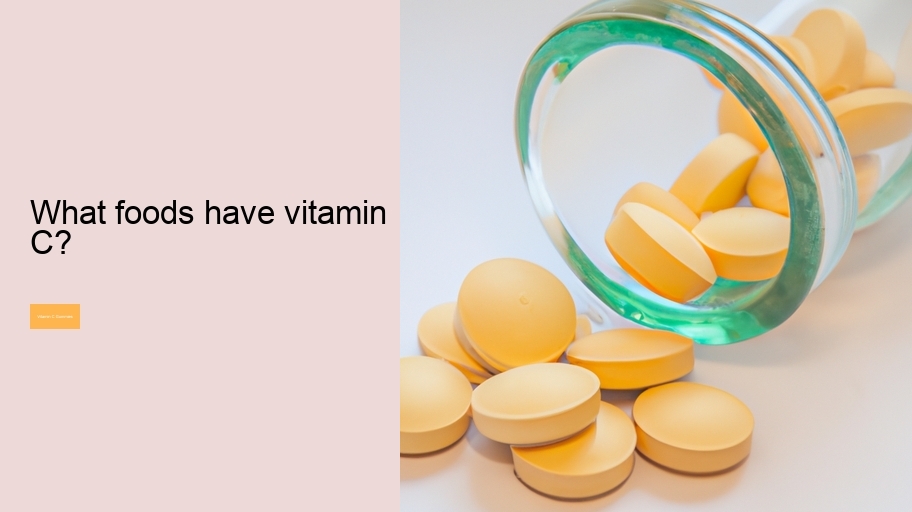Vitamin C is crucial for the formation and repair of connective tissues, including tendons, ligaments, and cartilage, which are essential for joint health and flexibility. By neutralizing these free radicals, vitamin C contributes to overall health and longevity.
What foods have vitamin C? - vitamin
- cons
- vitamin
- vitamin c deficiency
- ascorbic acid
- products
- supplements
- gummies
- supplements
- cons
- products
What foods have vitamin C? - gummies
- cons
- vitamin
- vitamin c deficiency
- ascorbic acid
- products
- supplements
Vitamin C gummies have become increasingly popular as a convenient way for people to supplement their health with this essential nutrient. supplements It neutralizes free radicals, unstable molecules that can cause cellular damage and lead to various diseases.
What foods have vitamin C? - vitamin
- cons
- vitamin
- vitamin c deficiency
- ascorbic acid
- products
- supplements
- gummies
This demographic can benefit from the convenience and taste of gummy supplements. Excessive sugar intake is a concern for many, and some vitamin C gummies may contain added sugars.
While they should not replace sunscreen, the antioxidant properties of vitamin C can complement sun protection efforts, reducing the risk of skin aging and damage caused by UV rays. gummies Vitamin C is involved in the synthesis of collagen, which is essential for the healing of wounds, injuries, and surgical incisions.
What foods have vitamin C? - cons
- cons
- vitamin
- vitamin c deficiency
- ascorbic acid
- products
- supplements
- gummies
- vitamin c deficiency
- vitamin
